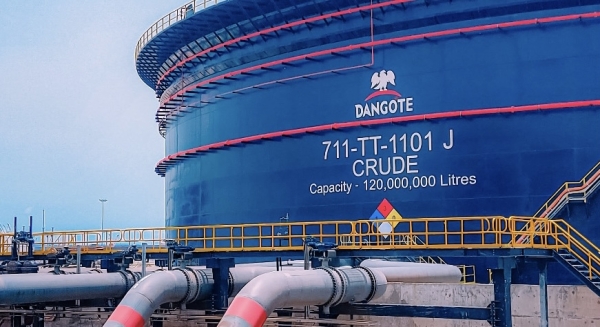The launch of the Dangote Petroleum Refinery is anticipated to drastically reduce Nigeria’s fuel import costs, which currently stand at about ₦6.2 trillion annually.
Recall that Aliko Dangote, the chairman of the Dangote Group, confirmed at the Africa CEO Forum Annual Summit in Kigali, Rwanda, that the refinery will start distributing premium motor spirit next month.
This marks a significant shift towards self-sufficiency in fuel supply for Nigeria and potentially West Africa.
The Dangote Refinery, representing a $20 billion investment, aims to fulfil domestic demands and possibly extend its supply across the West African region, covering petrol, diesel, and aviation fuel needs.
Dangote expressed confidence in the refinery’s capacity, stating, “By sometime in June, Nigeria shouldn’t import anything like gasoline; not one drop of a litre.”
This development aligns with the Nigerian government’s strategy to reduce dependency on imported fuel, especially following the removal of fuel subsidies by President Bola Tinubu, which significantly cut the country’s petrol import to an average of one billion litres monthly.
The operation of the refinery is expected to offer considerable economic relief by slashing the hefty sum spent on importing fuel.
With Nigeria currently spending an average of about ₦520 billion on petrol imports, the commencement of local production could save the nation billions of naira annually.
The difference between the landing cost and pump price of petrol highlights the financial inefficiencies associated with importation.
Local refining is projected to eliminate these costs, providing cheaper fuel to Nigerian consumers and stabilizing market prices.
The reduction in fuel imports is likely to bolster Nigeria’s foreign exchange reserves and strengthen the naira.
A source from the Central Bank of Nigeria (CBN) told Punch Newspaper that this shift would decrease the demand for foreign currency, improving the country’s economic position and potentially leading to a stronger national currency.
“As the dollar demand reduces, the naira will rebound and that is good for the economy,” the CBN source said.
As the Dangote Refinery gears up for operation, the potential impacts on the Nigerian economy are profound.
This move could significantly reduce the national import bill and transform Nigeria into a key energy supplier in the region, promising economic benefits that extend beyond mere cost savings.


